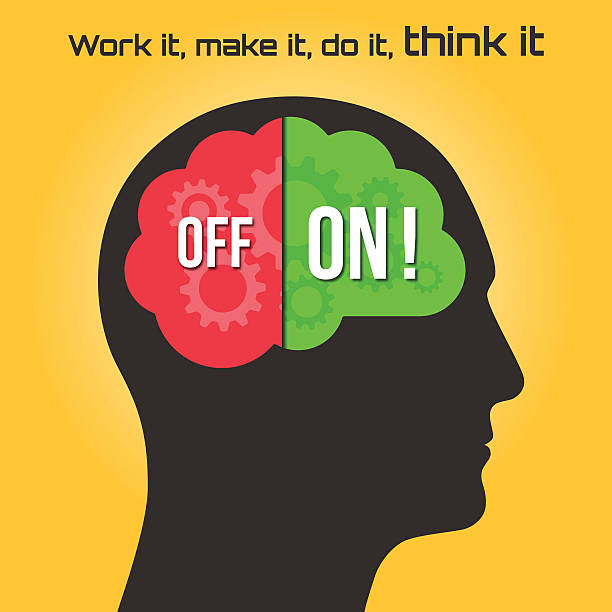Ever found yourself staring at a blank screen, knowing you’ve got a deadline looming but somehow ending up down a rabbit hole of cat videos? You’re not alone. Overcoming procrastination is a universal struggle, and this article dives deep into practical, creative ways to kick that habit to the curb. If you’re looking for a broader take on mastering your productivity, check out Overcoming Procrastination, which lays out a comprehensive guide to tackling delays and boosting efficiency. Here, we’ll zoom in on specific strategies, mindset shifts, and tools to help you stop putting things off and start getting things done.
Why We Procrastinate: Unpacking the Habit

The Psychology Behind Procrastination
Procrastination isn’t just laziness—it’s a complex dance of emotions, habits, and brain wiring. Our brains are wired to seek instant gratification, so when a task feels daunting or boring, we dodge it for something that sparks joy, like scrolling through X. According to Psychology Today, procrastination often stems from fear of failure, perfectionism, or even feeling overwhelmed. Recognizing these triggers is the first step to overcoming procrastination.
Take Sarah, a graphic designer at knowsia, who kept delaying a big client project. She wasn’t lazy—she was terrified her work wouldn’t be “perfect.” Once she identified that fear, she could tackle it head-on. So, what’s your procrastination trigger? Fear? Boredom? Pinpointing it helps you fight back.
Common Excuses and How They Hold You Back
We’ve all got our go-to excuses: “I’ll do it tomorrow,” “I work better under pressure,” or “It’s not the right time.” Spoiler alert: these are just stories we tell ourselves. These excuses create a vicious cycle, piling on stress and guilt. The truth? There’s never a “perfect” time, and waiting for one only digs a deeper hole. Breaking free from these mental traps is key to overcoming procrastination and reclaiming control of your time.
Practical Strategies for Overcoming Procrastination

Break Tasks into Bite-Sized Chunks
Big tasks can feel like climbing Everest in flip-flops. Instead of staring at the whole mountain, focus on the next step. The Pomodoro Technique, for instance, breaks work into 25-minute sprints with short breaks. It’s like tricking your brain into thinking, “Hey, I can handle 25 minutes!”
Try this: grab a notebook and split your project into tiny, actionable steps. Writing a report? Start with “outline the intro” instead of “write the whole thing.” Small wins build momentum, and before you know it, you’re halfway done.
Set Clear Goals and Deadlines
Vague goals like “work on the presentation” invite procrastination. Specific, time-bound goals—like “finish the first three slides by 2 p.m.”—create urgency. Tools like Trello or Notion let you organize tasks and set deadlines, keeping you on track. At knowsia, teams use these tools to stay aligned, turning chaotic projects into manageable workflows. Pro tip: share your deadlines with a colleague for extra accountability.
Use the Two-Minute Rule
If a task takes less than two minutes, do it now. Answer that email, file that document, or make that quick call. This rule, popularized by productivity guru David Allen, stops small tasks from snowballing into overwhelming to-do lists. Even for bigger tasks, start with two minutes—just open the document or jot down a quick idea. Often, starting is the hardest part, and those two minutes can spark a productive streak.
Mindset Shifts to Beat Procrastination

Embrace Imperfection
Perfectionism is procrastination’s sneaky sidekick. Waiting for the “perfect” draft or idea keeps you stuck. Instead, aim for progress over perfection. Author Anne Lamott champions the “shitty first draft” concept—write something, anything, and refine it later. This mindset frees you to act without the paralyzing pressure of getting it right the first time. Next time you’re stalling, remind yourself: done is better than perfect.
Reframe Tasks as Opportunities
Dreading a task? Flip the script. Instead of seeing it as a chore, view it as a chance to grow or shine. That boring spreadsheet? It’s your ticket to impressing your boss with killer data insights. Reframing tasks this way sparks motivation and makes starting less daunting. Try asking, “What’s the one thing I’ll gain from doing this?” It’s a game-changer for overcoming procrastination.
Practice Self-Compassion
Beating yourself up for procrastinating only fuels the cycle. Instead, treat yourself with kindness. Research from Greater Good Science Center shows self-compassion reduces stress and boosts productivity. Missed a deadline? Acknowledge it, learn from it, and move on. Tell yourself, “I’m human, and I’m working on it.” This gentle approach keeps you motivated rather than paralyzed by guilt.
Tools and Tech to Stay on Track
Time-Blocking for Focus
Time-blocking is like giving your day a roadmap. Assign specific tasks to specific hours, and stick to it. Apps like Google Calendar or Clockify make this a breeze. For example, block 9–10 a.m. for emails and 10:30–12 for deep work. At knowsia, employees swear by time-blocking to juggle multiple projects without dropping the ball. It’s a simple yet powerful way to stay focused and avoid procrastination.
Distraction Blockers
The internet is a procrastination playground. Tools like Freedom or Cold Turkey let you block distracting sites during work hours. Can’t resist X? Set a timer to limit your scrolling. These tools create a distraction-free zone, helping you stay laser-focused on your tasks.
Reward Systems
Humans love rewards—it’s science. Build a reward system to keep yourself motivated. Finish that report? Treat yourself to a coffee or a quick walk. Apps like Habitica gamify your to-do list, turning tasks into quests with virtual rewards. It’s a fun, effective way to trick your brain into staying productive.
Building Long-Term Habits
Create a Productive Environment
Your surroundings shape your habits. A cluttered desk or noisy space screams distraction. Set up a dedicated workspace with minimal clutter and good lighting. Add a plant or some calming music if that’s your vibe. Studies from Harvard Business Review show a tidy environment boosts focus and reduces procrastination. Make your space a productivity haven, and you’ll naturally gravitate toward work.
Develop a Routine
Consistency kills procrastination. Build a daily routine that primes you for action. Start your morning with a quick win, like making your bed or jotting down three priorities. Over time, these habits become second nature. At knowsia, employees kick off their day with a 10-minute planning session, setting the tone for focused work. Find a routine that works for you, and stick with it—even on tough days.
Reflect and Adjust
Overcoming procrastination is a journey, not a sprint. Regularly check in with yourself. What’s working? What’s not? Maybe time-blocking feels rigid, or you need shorter Pomodoro sessions. Adjust your strategies as you go. Journaling or using apps like Daylio can help track your progress and spot patterns. Reflection keeps you honest and ensures you’re always improving.
Overcoming Procrastination in Specific Scenarios
Tackling Work Projects
Work deadlines can feel like a pressure cooker. Break projects into phases—research, draft, review—and assign mini-deadlines to each. Collaborate with teammates for accountability. If you’re stuck, try the “eat the frog” method: tackle the hardest task first thing in the morning. It’s like ripping off a Band-Aid—painful but liberating.
Managing Personal Goals
Personal goals, like fitness or learning a skill, often fall victim to procrastination because they lack external deadlines. Set your own. Want to learn Spanish? Schedule 15 minutes daily on Duolingo. Track your progress to stay motivated. Sharing your goals on X or with friends adds a layer of accountability, making it harder to slack off.
Handling Overwhelm
Feeling swamped? Prioritize ruthlessly. Use the Eisenhower Matrix: sort tasks into urgent/important, and ditch or delegate the rest. If you’re juggling too much, say no to low-value tasks. Overwhelm thrives on chaos, so bring order to your to-do list, and watch procrastination shrink.
The Ripple Effect of Overcoming Procrastination
Kicking procrastination doesn’t just clear your to-do list—it transforms your life. You’ll feel more confident, less stressed, and ready to tackle bigger goals. That project you’ve been dodging? It might lead to a promotion. That hobby you’ve neglected? It could spark a new passion. Every step you take toward overcoming procrastination builds momentum, creating a ripple effect of success.
So, what’s one task you’ve been putting off? Grab it, break it down, and start today. With the right strategies, mindset, and tools, you’ve got this. And if you need a little extra inspiration, knowsia’s got your back with resources to keep you moving forward.

